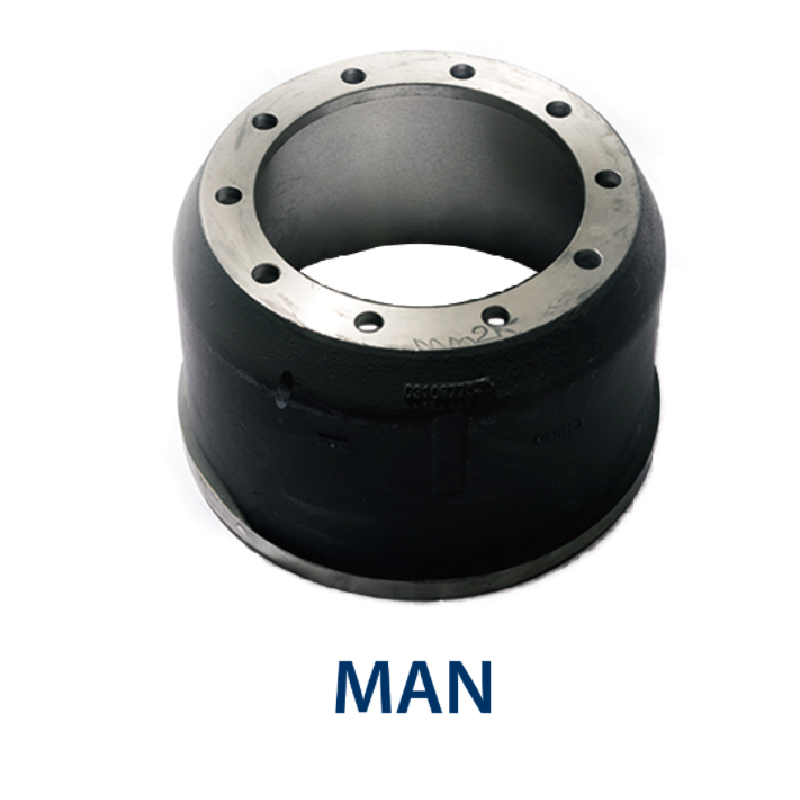Oct . 16, 2024 08:27 Back to list
When is the right time to replace your brake drums for optimal safety?
When to Replace Brake Drums A Comprehensive Guide
Brake systems are crucial for the safety and performance of any vehicle. Among the essential components of this system, brake drums play a vital role in ensuring the effective operation of drum brake systems. Understanding when to replace brake drums is essential for maintaining your vehicle's safety performance and prolonging its lifespan. This article will explore the signs of wear, the importance of routine inspections, and factors affecting the lifespan of brake drums.
Signs of Worn Brake Drums
1. Unusual Noises One of the first signs that your brake drums may need replacing is the presence of unusual sounds when braking. A scraping or grinding noise can indicate that the brake pads have worn down, leading to contact between the brake shoes and the drum itself. This friction can damage the drum surface and necessitate replacement.
2. Vibration or Pulsation If you feel vibrations or pulsations through the brake pedal when engaging the brakes, it might indicate that your brake drums are warped or unevenly worn. This issue can reduce braking efficiency and cause further damage to the braking system if not addressed promptly.
3. Reduced Stopping Power If you notice a decrease in your vehicle's braking performance, such as longer stopping distances or a spongy brake pedal, it may be time to inspect the brake drums. Worn or damaged drums can severely affect your vehicle's ability to stop as intended, and this could pose a significant safety risk.
4. Visual Inspection Regular visual inspections of brake drums can also reveal issues. Look for deep grooves, cracks, discoloration, or severe rust buildup. These imperfections can indicate that the brake drums have reached the end of their service life and should be replaced.
Importance of Routine Inspections
Routine inspections of your brake components, including brake drums, are essential for ensuring your vehicle's safety. Scheduling regular maintenance with a professional mechanic can help catch potential issues before they escalate into more significant problems. Mechanics often recommend that you have your brake system inspected at least once a year or every 10,000 to 15,000 miles to identify warning signs early.
when to replace brake drums

Factors Affecting Brake Drum Lifespan
The lifespan of brake drums can vary significantly based on several factors
1. Driving Conditions Frequent stop-and-go traffic, hilly terrain, and heavy hauling can contribute to accelerated wear on brake components, including drums. If you frequently drive in these conditions, anticipate needing to replace your brake drums more often.
2. Material Quality The quality of the brake drums themselves plays a significant role in their longevity. Higher-quality materials may resist wear better, while cheaper drums could wear out sooner, necessitating more frequent replacements.
3. Brake Pad Quality The quality of the brake pads used in conjunction with the drums can also affect drum wear. High-quality pads provide better performance and may lead to less wear on the drums, while inferior pads might wear down the drum surface more quickly.
4. Regular Maintenance Adhering to a proactive maintenance schedule can extend the life of your brake drums. Regularly replacing worn brake pads and ensuring proper brake fluid levels can help maintain optimal braking performance and reduce unnecessary wear on the drums.
Conclusion
Understanding when to replace brake drums is crucial for vehicle safety and efficiency. Regular inspections, being vigilant for warning signs, and recognizing the factors impacting brake drum lifespan can help ensure that your vehicle’s braking system remains in top condition. Proper maintenance not only enhances safety but also prolongs the life of your vehicle. Don’t underestimate the importance of your brakes—check them regularly and replace components as needed to ensure safe travels on the road.
-
HINO Industrial Solutions - ¡Ң���ຽ��е��������˾ | Advanced Efficiency&Customization
NewsJul.13,2025
-
HINO Industrial Efficiency Solutions - ¡Ң���ຽ��е��������˾
NewsJul.13,2025
-
HINO Industrial Solutions - ¡Ң���ຽ��е��������˾ | Advanced Technology&Reliability
NewsJul.13,2025
-
HINO Industrial Efficiency-Jiangsu Hino Industrial|Productivity Optimization&Cost Reduction
NewsJul.12,2025
-
HINO-¡Ң���ຽ��е��������˾|Advanced Industrial Solutions&Energy Efficiency
NewsJul.12,2025
-
Premium Brake Drum Iveco – Durable Drum Brake Drum & Brake Shoe Solutions
NewsJul.08,2025
